Serendip is an independent site partnering with faculty at multiple colleges and universities around the world. Happy exploring!
New Points of View
Hello All,
This collage is titled “New Points of View,” and it aims to represent the various experiences and cultural capital we bring with us here to Bryn Mawr. Ultimately, social class is another form of diversity such as gender, race, or ethnicity. It shapes who we are and how we experience the world around us. However, social class is different from all of these things in the fact that the topic is alarmingly taboo. Although, like race and gender, it is something we are usually born into, we feel uncomfortable embracing it or even acknowledging its existance. This collage aims to ask the viewer whose culture has capital. Do we all have cultural capital? Whose is most important? Is anyone's cultural capital more valuable than others? Is there a way that we can acknowledge these differences rather than ignore them? And finally, how do we “bridge the gap” and learn from one another?
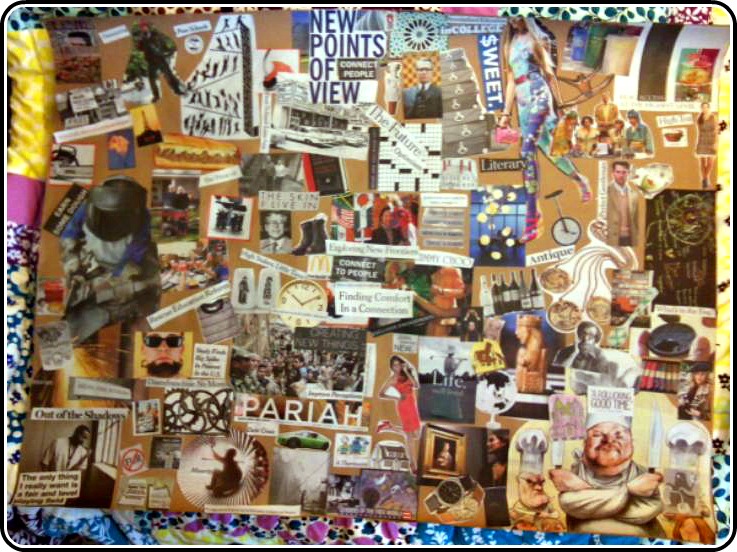
What differences do you see between the left side and the right side? Are these differences important? Which one more closely mirrors your experience?
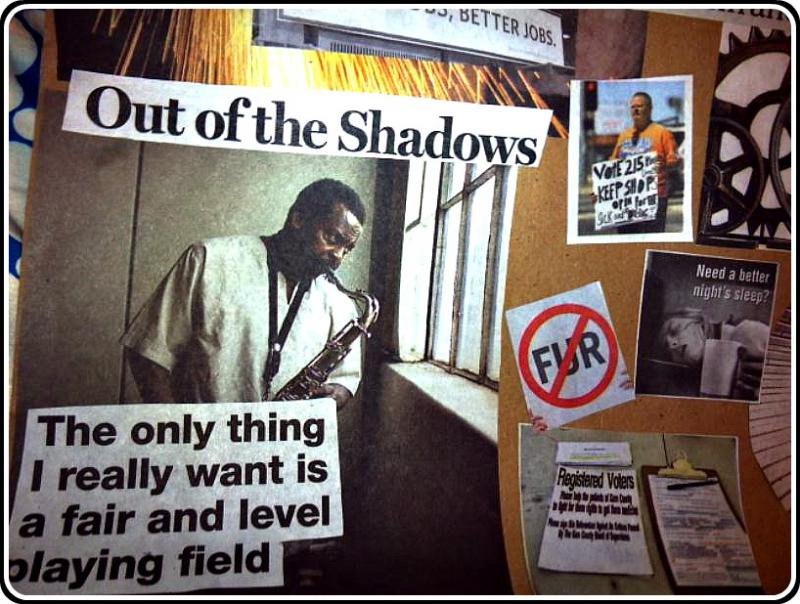
What are your feelings about the American Dream? Is it attainable for everyone?
Would you agree or disagree that class inequities exist here at Bryn Mawr?
How might these differences in social class affect student life here at Bryn Mawr?
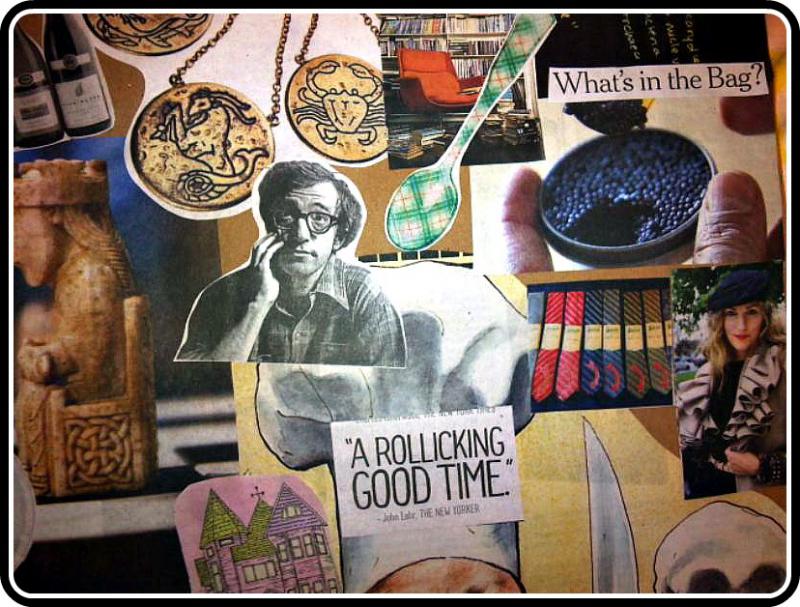
Think about how you speak and write. Does the type of language you use gain you respect? How is language classed? Is it classed? Which class does this type of language favor?
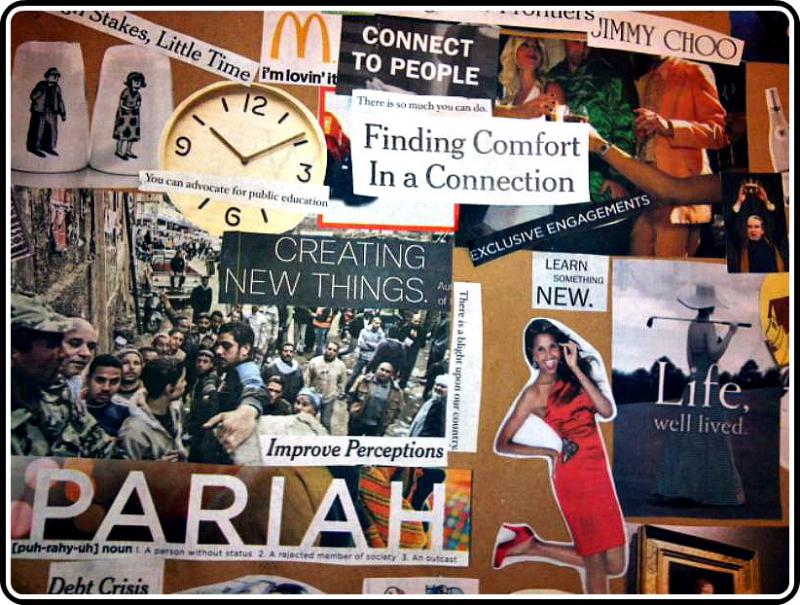
Whose culture has capital?
Cultural capital is usually referred to as the "cultural knowledge and ways of doing things that are valued within a particular cultural arena and therefore can be used, or "invested," by the person who has that knowledge in order to advance and prosper in that arena" (University of Toledo) In American society, gaining cultural capital means gaining knowledge of "elite cultural forms" like opera, ballet, or European culture.It also means denying other important forms of cultural capital.
Check out the quiz below. Which type of cultural capital is more important? Could you say that one is more important than the other? What are the advantages of being "school smart" versus "street smart?"
QUIZ! (Indiana State University)
Group One:
- What is The Ryder Cup?
-
a Polo championship, a horse race, a golf tournament, or a sailboat race
-
- What is Zabars?
-
a haberdasher, a delicatessen, a hotel, or a resort
-
- What is a "double windsor?"
-
A shotgun, a mixed drink, pleats in trousers, or a tie knot
-
- Where does the fish fork go?
-
Above your plate, with the forks on the outside, with the forks in the middle, or with the forks on the inside
-
- Who wrote "The Four Seasons?"
-
Vivaldi, Beethoven, Mozart, or Verde
-
Group 2:
- What does a shop steward do?
-
Cleans and serves, collects union dues, represents workers, or represents management
-
- White clothing is washed in...
-
Hot water, warm water, cold water, or any temperature water
-
- Who is number 8?
-
Jeff Gordon, Jeff Gordon Jr., Dale Earnhart, or Dale Earnhart Jr.
-
- What does DeWalt make?
-
Boats, power tools, fishing rods, or wheel rims
-
- BOGO is a...
-
Laundry term, sale term, fishing term, BBQ term
-
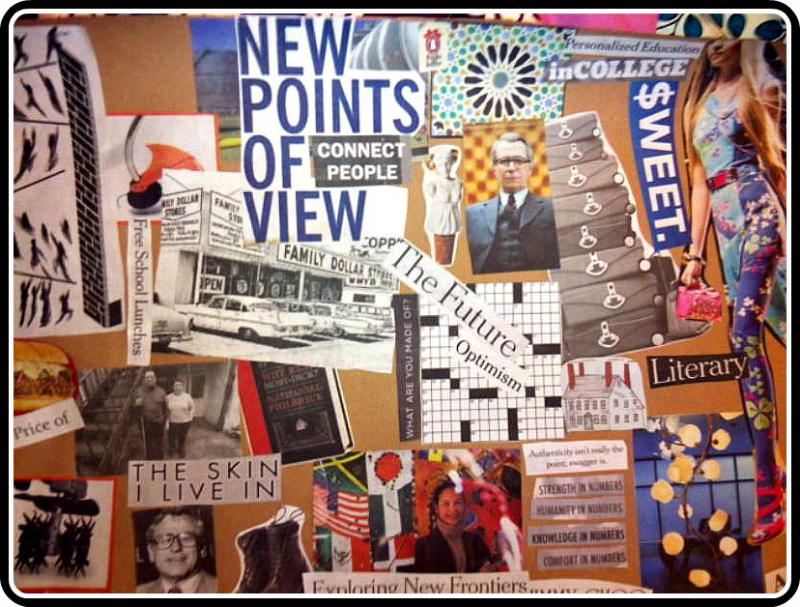
Bridging the Gap
What are the effects of talking about social class at Bryn Mawr? Do you think it presents an opportunity to learn from one another?
The concept of social class doesn't have to be taboo, and it's time for us, as a community, to talk about it. No, it probably won't feel comfortable, but change rarely does.
In the words of Henry Miller, “Whenever a taboo is broken, something good happens, something vitalizing.”
Final Note from the Artist:
My project doesn't aim to provide answers, but instead, it asks questions. Why? The purpose of this collage is to invite our campus community to discover and think about issues of social class in the way we had been doing all semester long. We had been asked to grapple with complex ideas and complicated societal problems that, even after discussion, have no true resolution.
I'm hoping that my audience (the Bryn Mawr community) really does take a change to grapple with these questions as we had done during the semester, because I think that through questioning ourselves instead of being provided immediate solutions, we discover a lot more about who we are.
Answers to the Quiz!:
- a golf tournament, a delicatessen, a tie knot, with the forks in the middle, Vivaldi
- represents workers, hot water, Dale Earnhart Jr., power tools, sale term
Sources:
Barratt, Will. "Social Class on Campus." Will Barratt, Ph.D. Indiana State University, 26 Mar. 2009. Web. 07 Dec. 2011.
"Educational Foundations & Leadership." The University of Toledo. The University of Toledo, 12 Apr. 2011. Web. 07 Dec. 2011.
Monnier, Christine. "Global Sociology." Glossary and Sources (Culture). PBWorks, 07 Dec. 2010. Web. 07 Dec. 2011.
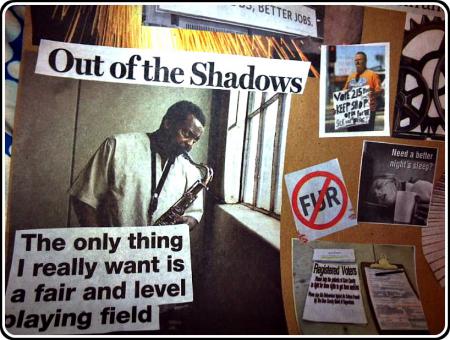



Comments
certifying cultural capital
JHarmon--
what I'm liking most about this project is two dimensions: its insistently visual quality (images can speak to us so much more directly, and I think we respond more spontaneously to them, than to words) and its questioning quality. That I couldn't answer either set of questions in your "cultural capital" quiz, for instance, has got me asking a number of additional questions about who I am, how I am positioned, how narrow my own particular fund of cultural capital is, and what difference that makes, in a world where my role (as a college prof) is, in part, about certifying others as "educated"....